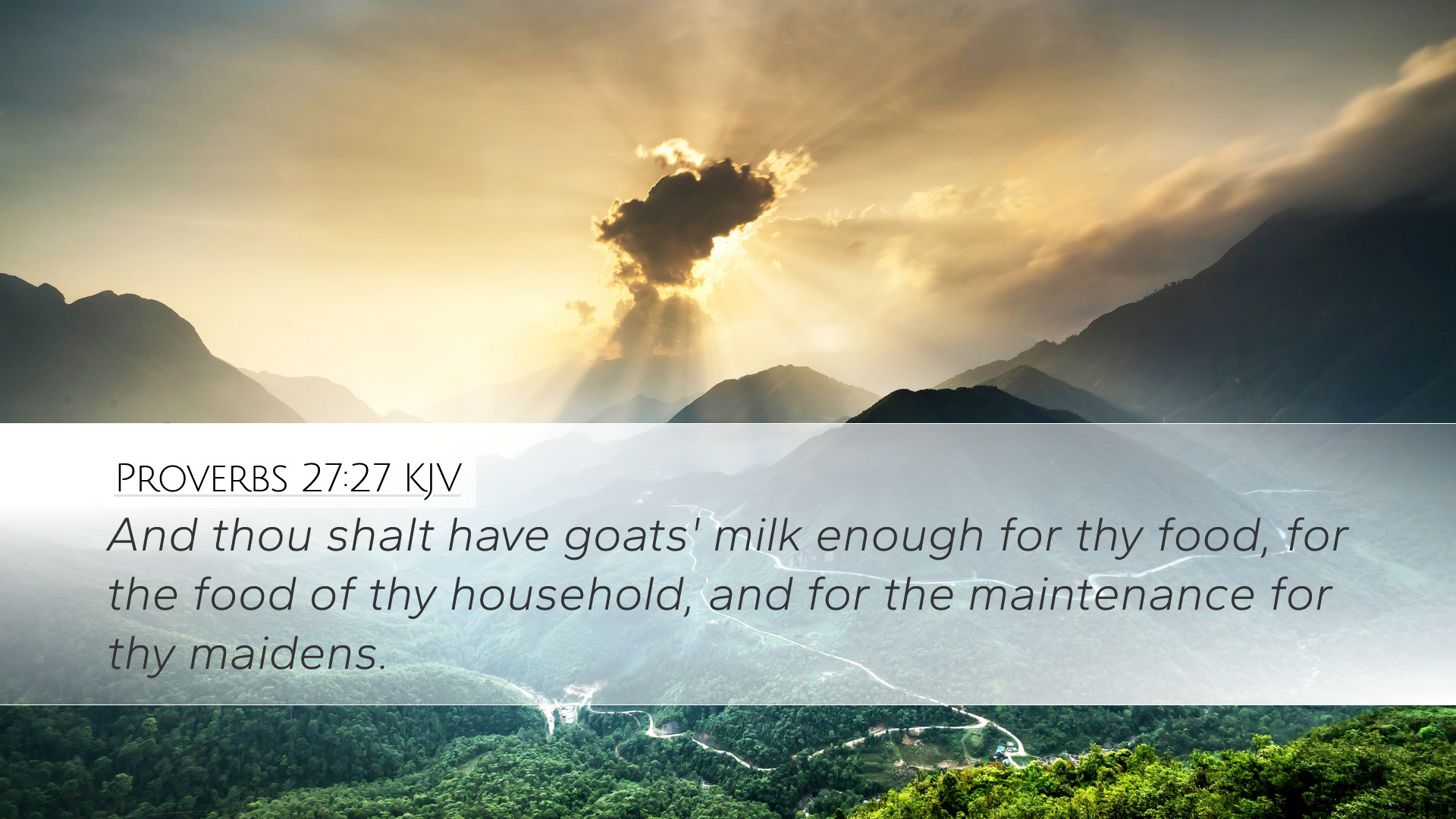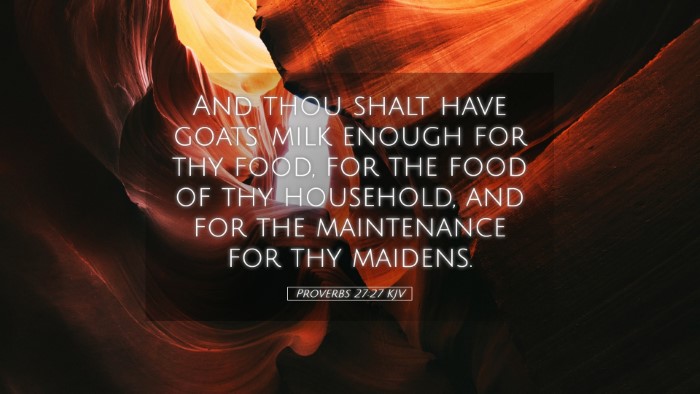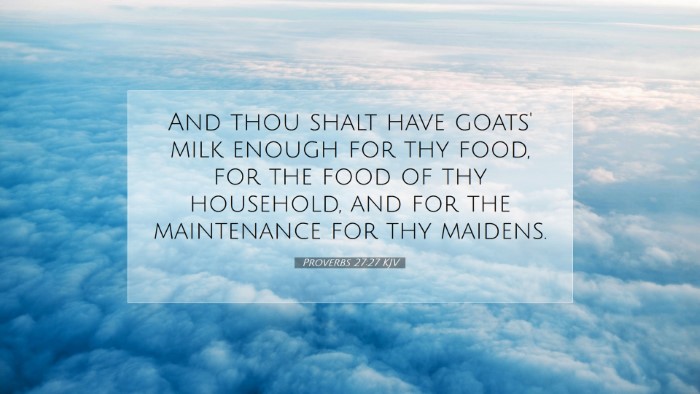Commentary on Proverbs 27:27
Verse: "And you will have plenty of goats’ milk to feed your body and your servant girls."
This verse encapsulates the idea of abundant provision and blessings that arise from good stewardship and diligent labor, reflecting on both physical and spiritual well-being.
Contextual Analysis
The Book of Proverbs is rich with wisdom, focusing heavily on practical living. Within this framework, Proverbs 27 serves as a practical section concerning life, relationships, and stewardship.
Commentators often point to the agricultural setting of the verse. Goats were valuable in ancient Israel, serving not only as sources of milk but also as symbols of wealth and sustenance.
Insights from Commentators
Matthew Henry's Commentary
Matthew Henry emphasizes the practical nature of the proverb, highlighting that it signifies the rewards of diligent planning and caring for one's household. He notes:
- Provision and Needs: The mention of goats’ milk is significant as it represents nourishment not just for the head of the household, but also for servants, reflecting a generous spirit.
- Working for Abundance: Henry illustrates that successful oversight leads to ample supply. A diligent and wise person will reap the benefits of their labor in both material and relational contexts.
Albert Barnes' Notes on the Bible
Barnes brings a more theological reflection to the verse, suggesting that the abundance of goats’ milk parallels spiritual nourishment:
- Spiritual Implications: He posits that just as physical sustenance is crucial, so is the spiritual sustenance from God. The faithful steward is not just efficient in physical matters but is also astute in recognizing the spiritual provisions God offers.
- Community Aspect: Barnes points out the verse’s communal implications, noting that the care for household servants reflects a spirit of generosity that extends beyond self-interest.
Adam Clarke's Commentary
Adam Clarke adds depth by examining the cultural and practical implications inherent in the proverb:
- Cultural Relevance: Clarke explains that in ancient Israelite society, goats’ milk was a fundamental source of nourishment and a staple in the diet, therefore signifying practical well-being.
- Generosity in Stewardship: He highlights that the mention of “servant girls” suggests that true wealth is not simply about personal prosperity but includes the welfare of those who serve us. The wise person not only plans for their own needs but ensures others are cared for.
Theological Reflections
This verse prompts one to reflect on the broader spiritual truths contained within the pursuit of wisdom and stewardship:
- God’s Provision: Just as the wise steward plans for the physical needs of their household, they must also seek to align with God's provision and goodness.
- Wisdom in Relationships: The dynamics of household management as indicated in the verse reflect deeper theological themes of mutual care and responsibility in Christian fellowship.
- Physical and Spiritual Nutrients: The dual nature of provision—both physical (milk) and relational (servants)—invites believers to nurture both their own souls and those around them.
Practical Applications for Ministry
For pastors, theologians, and students of the Bible, Proverbs 27:27 offers several applications:
- Diligent Stewardship: Emphasize diligence in nurturing both physical and communal needs within church life. Leaders should focus on providing for their congregations in tangible ways, ensuring that everyone is cared for.
- Encouragement of Generosity: This verse serves as a reminder to exhort congregants to think beyond themselves, fostering a spirit of generosity and community involvement.
- Education on God’s Provision: Teach about God's faithfulness in providing, helping individuals to trust in His plans and provisions for both their physical and spiritual sustenance.
Conclusion
Proverbs 27:27 encapsulates vital aspects of wisdom—planning, provision, and community care. It invites readers to a broader understanding of stewardship that encompasses both material and spiritual dimensions. The insights from Matthew Henry, Albert Barnes, and Adam Clarke converge around a central theme: true wealth is measured not just by what one possesses but also by how one cares for others and recognizes the providential hand of God in their lives.


